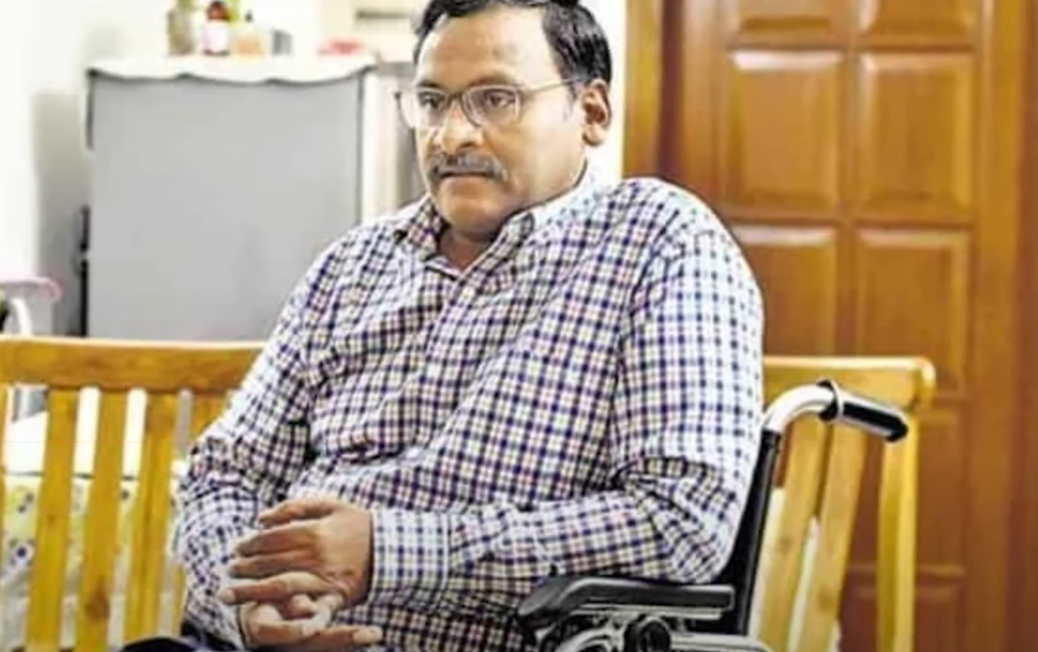Disabled Indian former professor to stay in jail after top court suspends acquittal
Professor’s family members say his health has deteriorated inside prison

Your support helps us to tell the story
From reproductive rights to climate change to Big Tech, The Independent is on the ground when the story is developing. Whether it's investigating the financials of Elon Musk's pro-Trump PAC or producing our latest documentary, 'The A Word', which shines a light on the American women fighting for reproductive rights, we know how important it is to parse out the facts from the messaging.
At such a critical moment in US history, we need reporters on the ground. Your donation allows us to keep sending journalists to speak to both sides of the story.
The Independent is trusted by Americans across the entire political spectrum. And unlike many other quality news outlets, we choose not to lock Americans out of our reporting and analysis with paywalls. We believe quality journalism should be available to everyone, paid for by those who can afford it.
Your support makes all the difference.India’s Supreme Court has suspended a judgment by a lower court that acquitted a former Delhi University professor arrested over alleged links to left-wing extremists.
The academician GN Saibaba, who is paralysed from the waist down due to a post-polio paralytic condition, was arrested in 2014 and sentenced to life imprisonment for his alleged links to the banned rebel outfit Communist Party of India (Maoist) under the contentious Unlawful Activities (Prevention) Act (UAPA), and recruiting others to join the unit.
The UAPA act has been criticised as a tool used to take arbitrary action against government critics, including activists, lawyers, journalists, and academics, as well as civilians from Kashmir.
The Bombay High Court ordered the immediate release of Mr Saibaba from jail on Friday.
This was after several appeals were made by Mr Saibaba’s family members, who stated that his health has deteriorated inside the prison.
“He is an intellectual and a teacher. He was framed in the case. His health has deteriorated and his limbs are not working properly because of spending seven years in jail. At present, my brother-in-law is in Nagpur to complete the formalities,” the former professor’s wife Vasanta Kumari had said.
However, a bench in India’s top court suspended the judgment on Saturday, arguing that it found fault with the High Court for not entering the merits of the case.
“High Court has not considered the merits. The HC discharged the accused only on the ground that the sanction was invalid and some material which was placed before the appropriate authority and sanction was granted on the same day,” the court said, The Indian Express reported.
“Offences are very serious and if the state succeeds on merits, offenses are very serious against the interest of the society, sovereignty and integrity of India,” the top court said, according to Bar and Bench.
The Supreme Court said it would consider whether an appellate court is justified in acquitting an accused person on the ground of irregular sanction when he was convicted on merit and has fixed the next hearing on 8 December.



Join our commenting forum
Join thought-provoking conversations, follow other Independent readers and see their replies
Comments